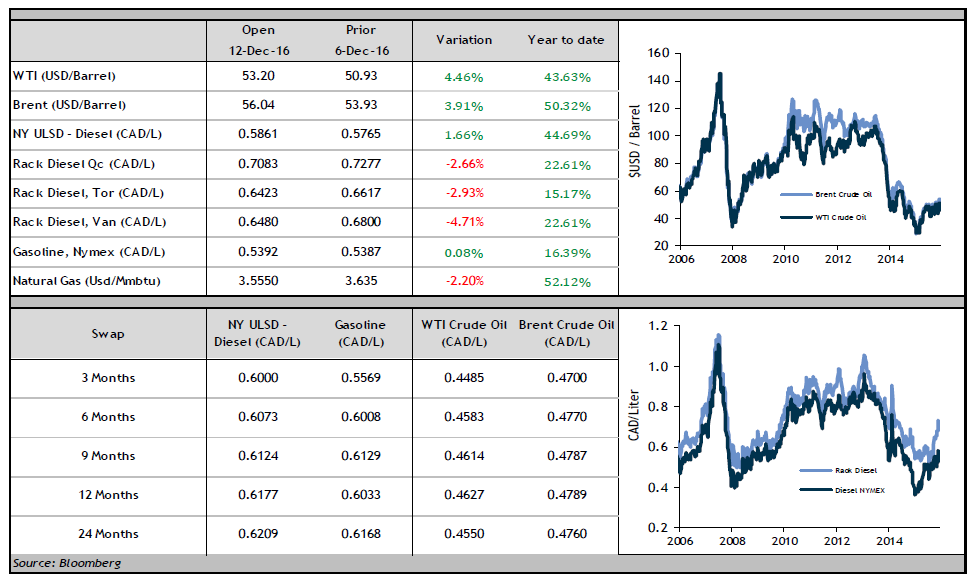Oil prices over the course of the last week were relatively stable and WTI crude oil settled at 51.50 USD/barrel. On Saturday, non-OPEC members agreed to reduce their oil production by 558,000 barrels/day in order to support OPEC members in their last production reduction agreement. Additionally, Saudi Arabia signaled its willingness to reduce its production even further than agreed. Following the announcement of a production cut for non-OPEC members, WTI crude oil prices were trading higher by 4.6% at the open. Amongst the other news items:
- The state company of Saudi Arabia, Saudi Arabian Oil Co., has begun informing its clients (refineries) of the fact that the country will reduce its crude oil exports as of January. The cuts will mainly affect American and European refineries while Asian refineries will not be affected. This announcement adds credibility to OPECs agreement.
- According to Emmanuel Kachikwu, Nigerian Minister of Petroleum Resources, the oil markets should rebalance around mid-2017. This would lead to the end of a three year period where oil supply exceeded demand.
- Various banks and hedge funds updated their forecasts for WTI oil over the course of 2017. To name only two, Pierre Andurand, hedge fund manager forecasts 70 USD/barrel during the first half of 2017 while Wells Fargo (NYSE:WFC) anticipates oil prices to reach 62 USD/barrel in 2017.
In light of the historical production cut agreement and the high volatility, we invite our clients to contact us in order to review your hedging strategies in CAD/L.

